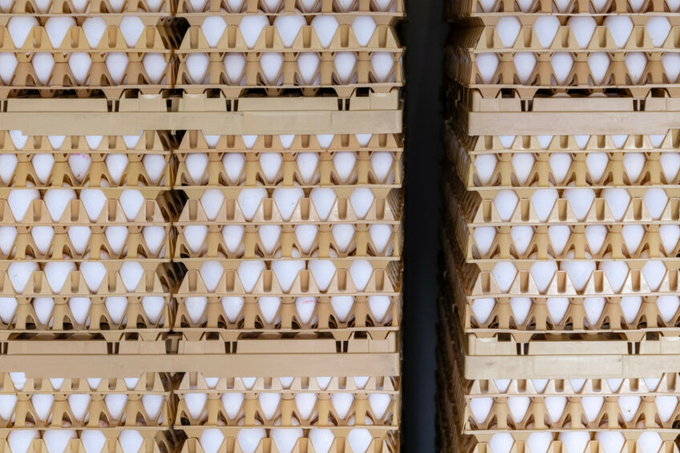May 24, 2025 | 16:25 GMT +7
May 24, 2025 | 16:25 GMT +7
Hotline: 0913.378.918
May 24, 2025 | 16:25 GMT +7
Hotline: 0913.378.918

Ukrainian eggs are reportedly 20-30% cheaper compared to those manufactured by Bulgarian farmers. Photo: Canva.
Overwhelming imports are believed to be the key factor preventing the industry from recovering after a devastating bird flu outbreak at the end of 2023. The Bulgarian government appealed to the European Commission, requesting to protect egg manufacturers “from negative market trends emerging as a result of imports from Ukraine”.
“The procedure for preparing a written request to the European Commission has already been kicked out,” Georgi Tahov, Bulgarian Agricultural Minister, outlined during a press conference.
On 2 July, the European Commission reimposed tariff quotas on Ukrainian eggs, subjecting imports to a €89 per tonne duty. Bulgarian farmers insist the measure is not sufficient and seek a full ban on Ukrainian egg imports.
In 2024, Bulgaria experienced a 400% hike in imports of eggs from Ukraine, Daniel Bozhankov, chairman of the Association of Industrial Poultry Breeding, has estimated. According to Bozhankov, the import duty doesn’t work – it is equal to only 5% of the wholesale price of eggs, so failed to curb the import flow. In fact, the deliveries have even picked up since the measure was introduced.
Bozhankov claimed that in May, nearly 311 tonnes of eggs were imported into Bulgaria, while in July, only two regions – Veliko Tarnovo and Dobrich – saw 432 tonnes land on their markets. Given the size of the Bulgarian market, the figure is enormous, Bozhankov stated, adding that cheap imports incur “millions of losses” to local farmers.
The Association of Industrial Poultry Breeding is not backing down. They are demanding that the authorities urge the European Commission to activate the ban on Ukrainian egg imports within 120 days. If their demands are not met, they are prepared to escalate their protest with a mass rally.
Ukrainian eggs are 20-30% cheaper compared to those manufactured by local farmers, Bozhankov estimated. He explained that Ukrainian manufacturers manage to keep the production costs relatively low, as they do not need to comply with European poultry welfare standards.
Overwhelming imports are also preventing the Bulgarian poultry industry from recovering from a large-scale bird flu outbreak that wreaked havoc in 2023. Over 1.5 million heads of laying hens were lost in the outbreak, leading to a significant drop in Bulgaria’s egg self-sufficiency from close to 115% to below 100%. This loss of self-sufficiency has deprived Bulgaria of its status as a net egg exporter.
(PW)

(VAN) Alt Carbon has raised $12 million in a seed round as it plans to scale its carbon dioxide removal work in the South Asian nation.

(VAN) Attempts to bring down the price of the Japanese staple have had little effect amid a cost-of-living crisis.

(VAN) Fourth most important food crop in peril as Latin America and Caribbean suffer from slow-onset climate disaster.

(VAN) Shifting market dynamics and the noise around new legislation has propelled Trouw Nutrition’s research around early life nutrition in poultry. Today, it continues to be a key area of research.

(VAN) India is concerned about its food security and the livelihoods of its farmers if more US food imports are allowed.

(VAN) FAO's Director-General emphasises the need to work together to transform agrifood systems.

(VAN) Europe is facing its worst outbreak of foot-and-mouth since the start of the century.